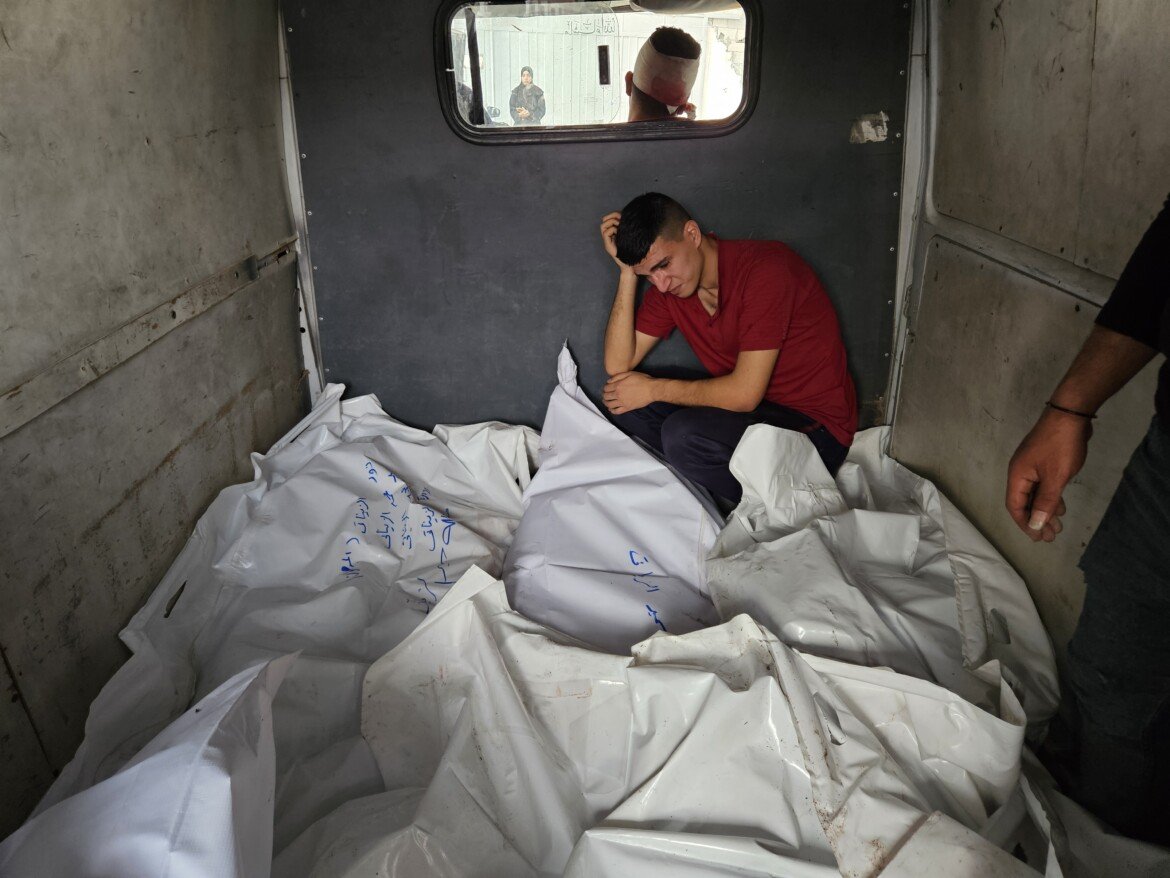Report
Israel is committing genocide in Gaza, UN concludes
This is far from a merely symbolic invitation. Although the reports of UN Commissions of Inquiry are not formally binding on the ICC, they exert a strong influence on international courts.

In its report released on September 16, 2025, the Independent Commission of Inquiry appointed by the UN Human Rights Council concludes that the Israeli authorities are committing genocide in Gaza.
According to the Commission, the ongoing violations fall under four of the five acts included in the definition of genocide according to the 1948 UN Convention, committed with the intent to destroy, in whole or in part, a specific national, ethnic, racial, or religious group. These acts are: (i) killing members of the group; (ii) causing serious bodily or mental harm to members of the group; (iii) subjecting the group to conditions of life calculated to bring about its physical destruction; and (iv) imposing measures intended to prevent births within the group.
The Commission argues that the real objectives of the military aggression against the Gaza Strip are to “kill as many Palestinians as possible” and to make Gaza an unlivable place for the survivors. These conclusions are entirely similar to those reached in numerous reports by governmental and non-governmental organizations, including some Israeli ones. The Commission also concludes that Prime Minister Netanyahu, President Herzog, and ministers such as Smotrich and Ben-Gvir are responsible for direct and public incitement to commit genocide.
In its conclusions, the Commission reiterates not only Israel’s obligations but also those incumbent upon third-party states, which are bound by a strict duty to prevent genocide and a prohibition on complicity in it. The Commission clearly states that since at least January 26, 2024 – when the International Court of Justice (ICJ) ordered initial provisional measures at South Africa’s request – all states have been on notice of the serious risk of genocide. Therefore, for more than a year and a half, they’ve been under an obligation to use all means at their disposal to prevent it. The Commission thus calls on all states to fulfil their specific obligations and responsibilities.
The Commission also provides states with precise guidance on the efforts they must make to ensure accountability and support international justice. It recommends that states should intervene as third parties in the proceedings brought by South Africa against Israel before the ICJ. The prohibition of genocide is a peremptory norm, and its violation affects not only Palestinians but every member of the international community; thus, all states are called upon to make their voices heard before the ICJ. The Commission also urges states to fully support and cooperate with the Office of the Prosecutor of the International Criminal Court (ICC) to ensure accountability on a criminal level as well.
This is far from a merely symbolic invitation. Although the reports of UN Commissions of Inquiry are not formally binding on the ICC, they exert a strong influence on international courts. These commissions of inquiry, which have increasingly taken on the character of quasi-judicial bodies, collect testimony, acquire evidence, and evaluate it according to rigorous, systematic and in-depth standards.
It is no coincidence that the current Commission is chaired by a former judge of the International Criminal Tribunal for Rwanda, who was invited to that role by Nelson Mandela himself. In that capacity, she dealt with the genocide in Rwanda, gaining unprecedented judicial expertise in the “most serious of international crimes.”
The authority of such commissions is demonstrated by precedent. In the past, their reports have served as crucial references for the ICC. One need only recall the 2005 Commission of Inquiry on Crimes in Darfur, chaired by Antonio Cassese, which paved the way for the UN Security Council’s first-ever referral to the ICC and helped identify those allegedly responsible for the international crimes committed in the region. In issuing its arrest warrant for former Sudanese President Omar Al Bashir, the ICC’s Pre-Trial Chamber made extensive reference to that report. The same occurred with Côte d'Ivoire, where the ICC Prosecutor based a large part of the investigation into former President Laurent Gbagbo on the findings of the UN Commission of Inquiry.
These precedents show that such reports, though not formally binding, can constitute indirect evidence for the ICC, often deemed sufficient at the pre-investigative stage to open investigations and issue arrest warrants. In this sense, the current report could provide the Prosecutor’s Office with grounds to broaden the scope of its investigations, reformulating the charges already pending against Netanyahu and former Defense Minister Yoav Gallant to include the charge of genocide and expanding the list of individuals under investigation.
The call for individual states to cooperate with the ICC carries significant weight at this stage, marked by harsh sanctions imposed by the U.S. government against the Court’s prosecutors and judges. UN Special Rapporteur Francesca Albanese and the three main Palestinian human rights organizations (Al-Haq, Al-Mezan, and PCHR) have also been targeted, with serious consequences for anyone interacting with the Court and a paralyzing effect on its work. Hence the urgency for states – including Italy – to heed the Commission’s appeal by taking concrete measures to counter these sanctions, which are illegitimate under international law, and to ensure the proper functioning of international criminal justice precisely where it is most needed today.
Originally published at https://ilmanifesto.it/non-solo-un-simbolo-linchiesta-onu-sul-genocidio-avra-effetti on 2025-09-16
